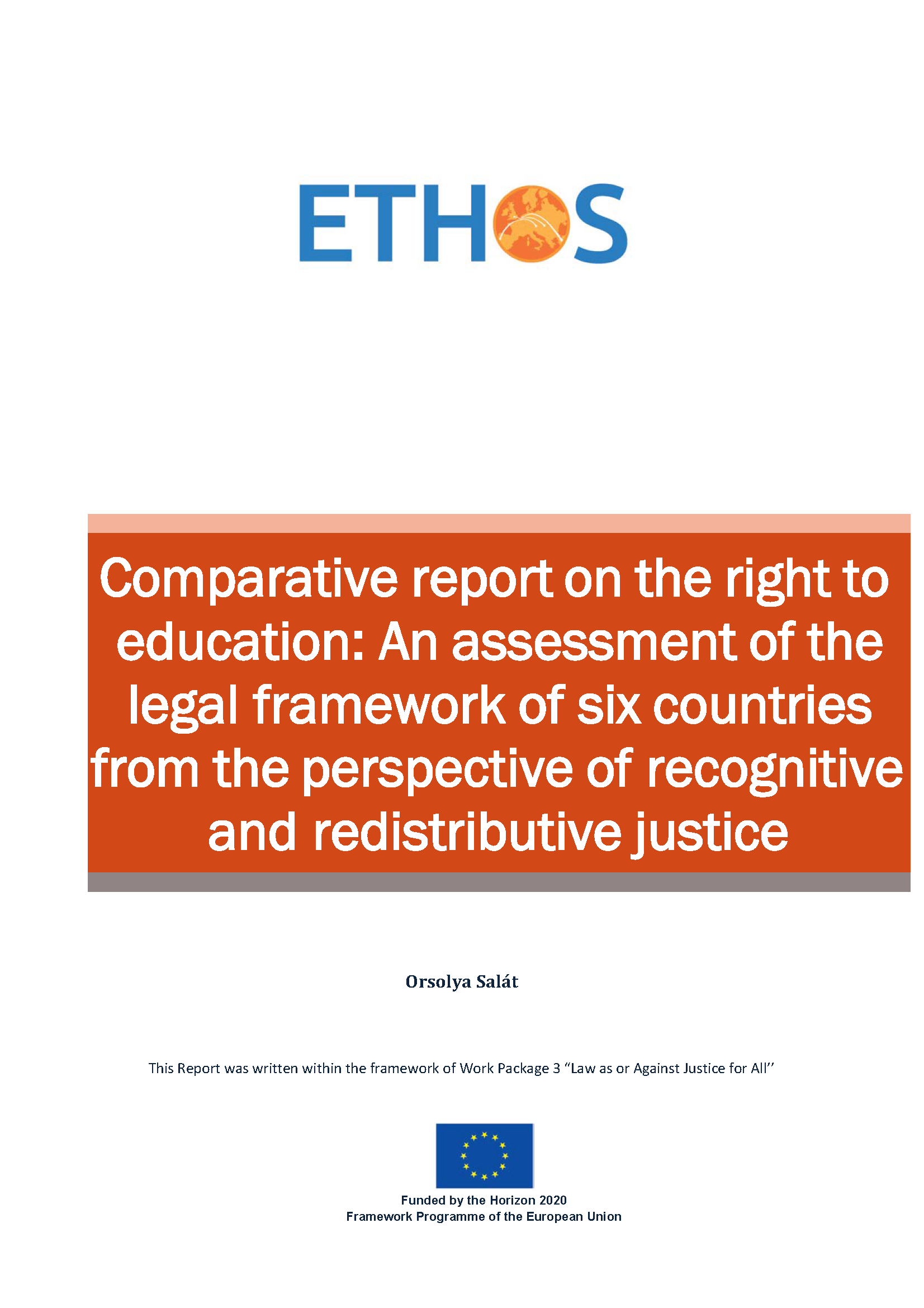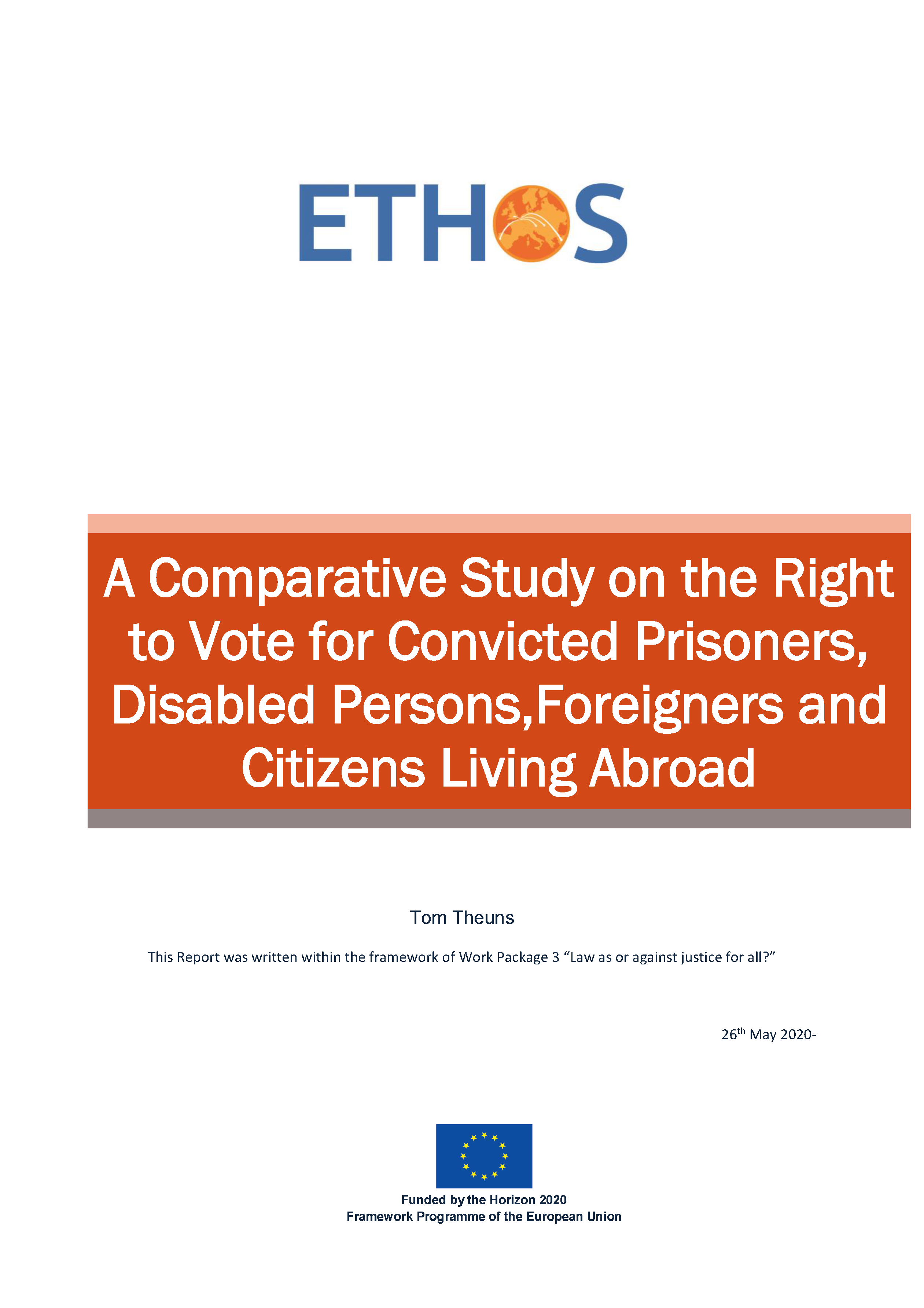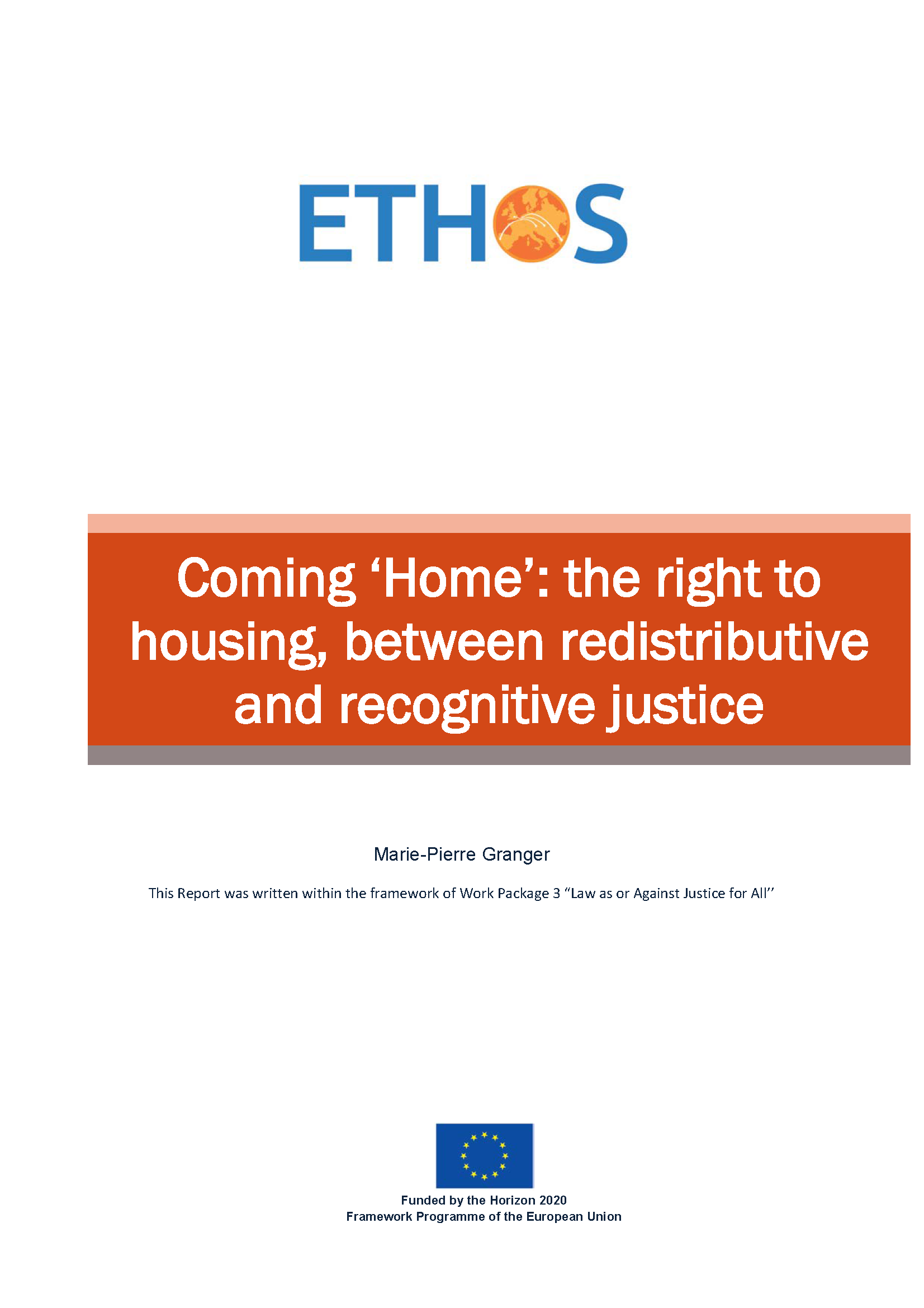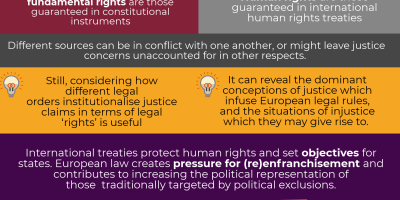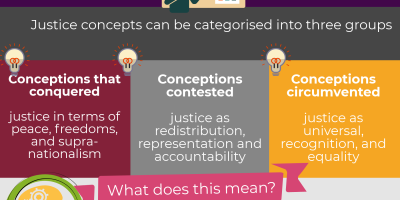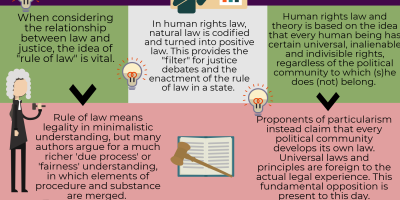Law as or against justice for all? (WP3)
At the EU and national level, the institutionalization of justice in law is the result of political and social mobilization processes, as well as of interactions and tensions between different levels of governance. This subproject investigates, theoretically as well as empirically, whether and how different conceptions of justice are incorporated and practiced in overlapping European legal orders. It examines how the legal systems of the EU and participating countries protect and balance different types of rights and how the various conceptions of justice institutionalised in law integrate marginalised populations. It also investigates the mechanisms that generate unfair treatment.
The project therefore scrutinizes the relevant balancing mechanism and analyse the procedural dimensions of their application. It explores the capabilities of various actors to activate or challenge the law in their pursuit of justice. The studies conducted within this subproject adopt a comparative and interactive approach, which includes research on both the European level (European Union and Council of Europe) and national level, and explores the transformative nature of their interactions.
Leading partner: CEU/UU; leading researchers: Marie-Pierre Granger/Barbara Oomen

This project has received funding from the European Union’s Horizon 2020 programme under grant agreement No. 727112

